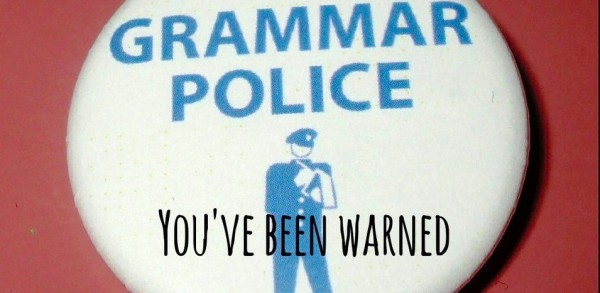It never fails. After you send out an email newsletter, you inevitably catch a typo or someone makes you aware of one.
“You used the wrong word,” your boss says. It’s frustrating, but it’s Murphy’s Law. If your marketing and PR efforts haven’t been plagued by it yet, they will be.

Some words that often foil the best of marketers? “Affect” and “effect” is a common pair as are these five other ones.
1. Affect and effect.
Affect typically is a verb while effect is a noun. To keep them straight, think of copy written for Zantax or some other drug. The effects of it are nausea, insomnia, irritability, et cetera, et cetera.
A person who takes a drug like Benadryl for seasonal allergies is affected by it; he or she can hardly stay awake during the day and dozes off during the afternoon meeting.
2. Complementary and complimentary.
Complementary means to “add to, complete, or reinforce” something else. Transmedia storytelling and cross-channel marketing use “complementary” content to create the full experience.
Complimentary is in relation to flattery or something given away for free as in the case of the drinks and hors d’oeuvres to be served at your by-invitation only event.
3. Averse and adverse.
If you wrote about the polar vortex a few months ago, you should have used “adverse” to describe it because the word means something opposed to a subject. For example, you may have been stranded in Houston because of “adverse” weather conditions.
If you mean that the subject is opposed to something, the correct word is “averse”: Noah is averse to any criticism about his artwork.
4. Conscience and conscious.
To have a conscience is to have a Jiminy Cricket; that is, you have “a sense of right and wrong.” To be conscious is to be awake or aware.
5. Every day and everyday.
 Everyday is an adjective meaning “used daily” or “common.” Every day is a noun modified by “every.” Levi’s actually used the wrong word when describing one of its lines of jeans; they were marketed as “every day” jeans even though the intention was that the jeans were perfect for daily wear. “Every day” is what happens when you’re in competition with your Fitbit. Because of it, you take a walk at lunchtime every day.
Everyday is an adjective meaning “used daily” or “common.” Every day is a noun modified by “every.” Levi’s actually used the wrong word when describing one of its lines of jeans; they were marketed as “every day” jeans even though the intention was that the jeans were perfect for daily wear. “Every day” is what happens when you’re in competition with your Fitbit. Because of it, you take a walk at lunchtime every day.
6. Principal and principle.
This one’s tricky because principal has three meanings: it can be an adjective meaning “foremost” or “major”; a noun meaning “chief official”; or, in finance, a noun meaning “capital sum.” A principle, in contrast, is a noun only, and it means “rule” or “axiom.”
If you’re talking about your business’ mission and goals, you’re talking about its principles. If you’re denoting which of those principles is the most important, you’re speaking of principal principles, which is almost as difficult to say as Peter picked a peck of pickled peppers. You may want to avoid using both words at the same time.
Which word pairs have proven troublesome to you?
Erin Feldman is director of editorial services at Tenacity5 and author of Write Right. Click here to get more of Erin’s grammar, marketing and PR tips.
Images: FitsNews, Lee Agas Guang (Creative Commons)![]()

